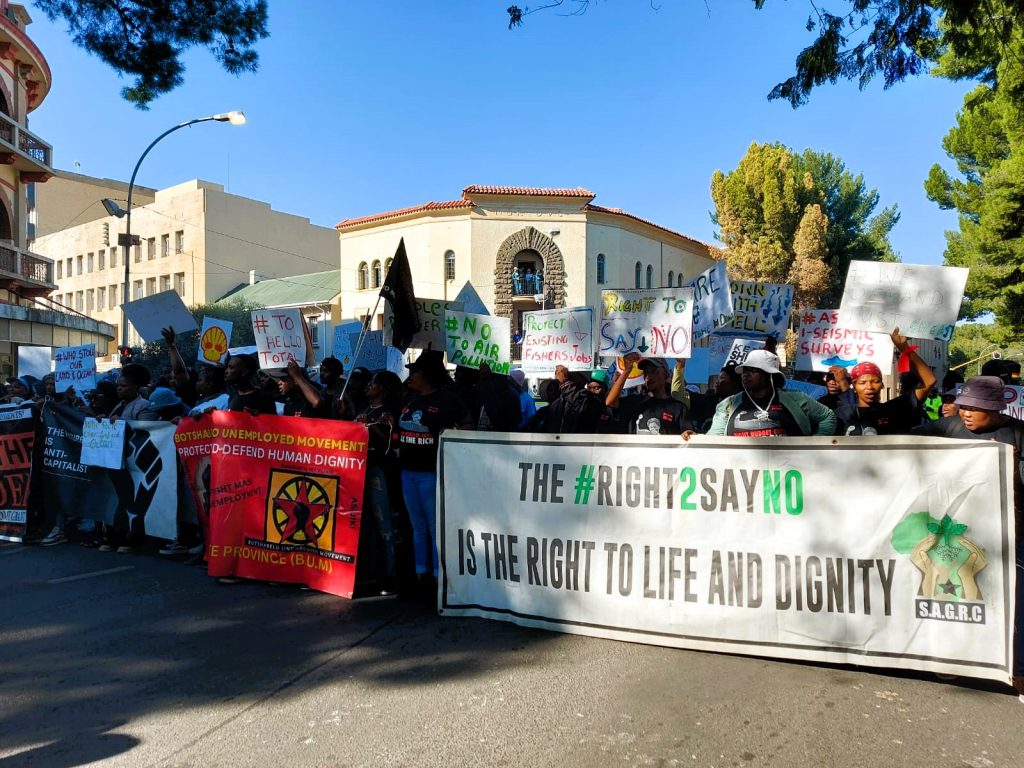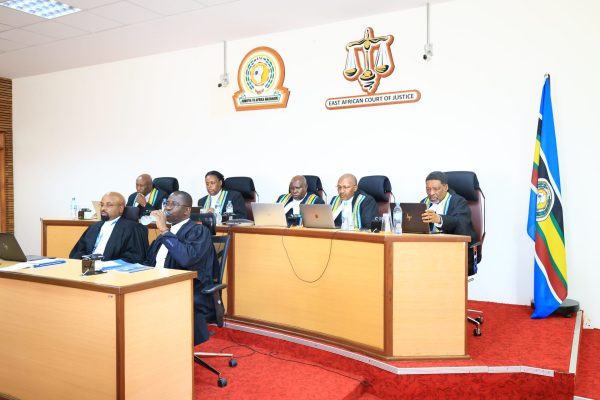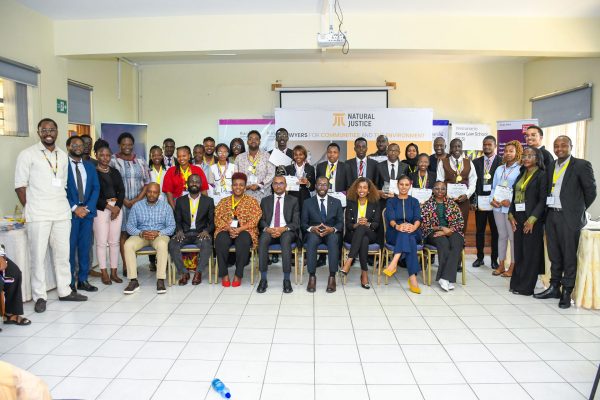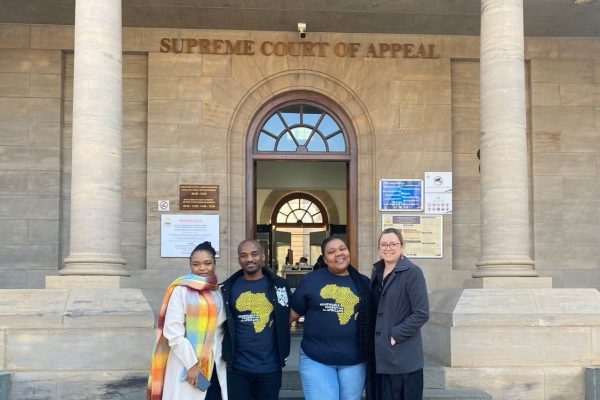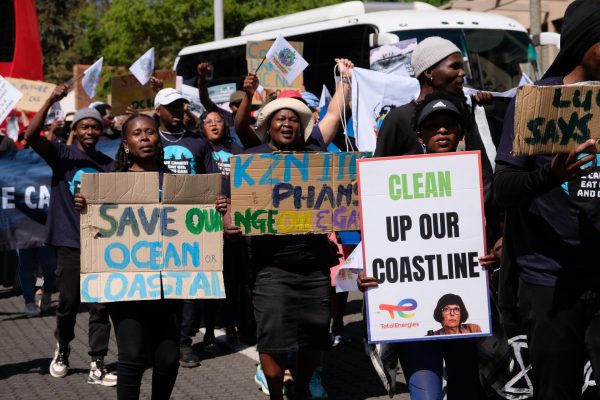On 17 May 2024, Coastal community activists and supporters headed inland, travelling for hours to station themselves outside the South African Supreme Court of Appeal in Bloemfontein.
Inside the courtroom, their legal representatives stood before five presiding judges, in a bid to uphold the groundbreaking High Court judgment which set aside an exploration right – which would have allowed the exploration for oil and gas off the coast of South Africa. The appeal was brought by Shell, Impact Africa, and the Minister of Minerals and Energy.
It was a warm Friday in Bloemfontein, as a large group of protesters, with fists in the air, sang struggle songs and waved placards that read: “Keep Shell Out,” “DMRE-DFFE Against the will of the people” and “Inland fishers stand in solidarity with the Wild Coast!” as they made their way through the central business district to the court.
Randall Bentley, a lifelong fisherman from the Kei Mouth, a town on the southeast coast along the Wild Coast, was there to, “defend our coast against people who don’t get enough. Companies who don’t get enough. They’ve got too much, and they still don’t get enough. It’s what you call capitalism.”
On Monday, Randall Bentley and others will be hearing from the SCA about whether their cries outside the courtroom were heard inside the courtroom. The Shell judgment is expected.
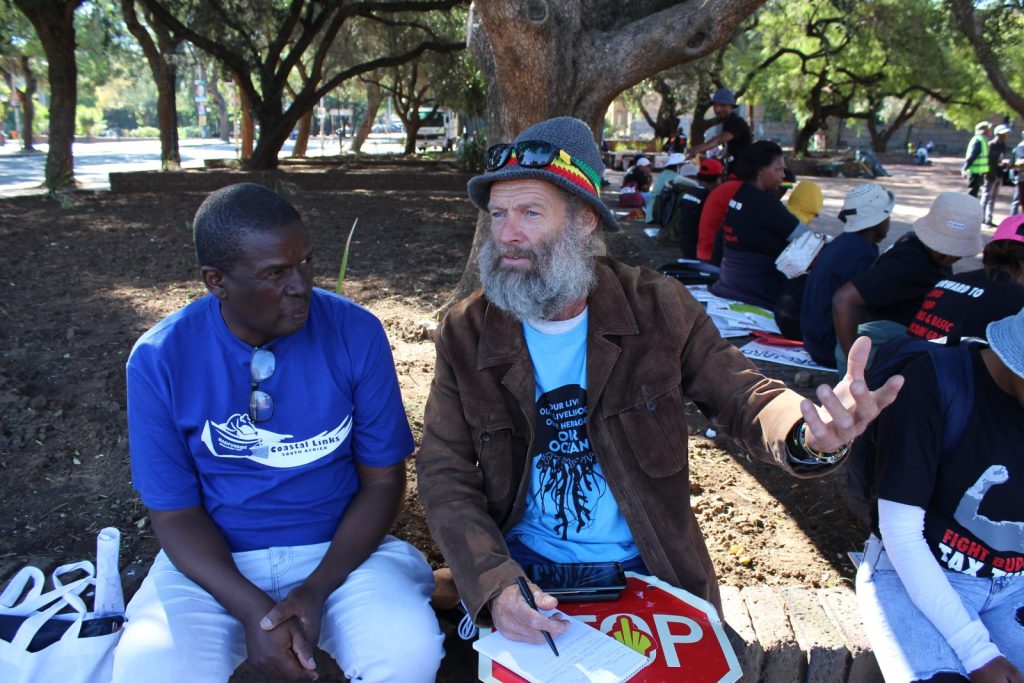
United against oil and gas
Those that came to support the case live in areas situated along the pristine, untamed Wild Coast that stretches along the Eastern Cape and southern Kwa-Zulu Natal region of the country. They face the hardships of unemployment, but they also face the constant risk of exploitation from developers and mining companies seeking to benefit from natural resources, while running roughshod over the human, cultural and environmental rights of the very people who would be most affected.
The locals know what might be in store for them if companies like Shell are allowed to go ahead with their development.
“It’s a well-known fact that oil and gas causes havoc and we don’t understand why they would want to be anywhere on this planet because it’s been said by the United Nations that people should curb or stop… oil and gas. And it’s just completely horrendous, if we take a look at what this oil and gas is doing to other parts of the world.” explained Randall Bentley. “We have a pristine coast in the Transkei, and we would like to keep it that way. And we absolutely do not appreciate any attempt to change that.”
This is why Monday’s judgment is so important to them.
Calls for clear consultation with coastal communities
The Shell case has raised a number of pertinent issues for coastal communities. For one, in obtaining the license to commence exploration, the communities attested to a very inadequate public participation process, in which details of the project were set out in English and Afrikaans newspapers, none of which are read by the communities. The chiefs were consulted, but when they suggested that the company consult with the people themselves, this wasn’t done.
Boyisile Mafilika attended court as a representative from Masifundise Trust, an organisation that has been working with coastal communities in the Eastern Cape from Lusikisiki up to Tsitsikamma area and the boarder of the Western Cape.
Mafilika raised several points about the difficulties of this case, the dangers of drilling for oil in the sea, the false promises of jobs, impacts of cultural and religious practices and the lack of community consultation.
“Now for the big companies to come and drill oil there, we know what oil does. One leak of oil causes more problems than someone who is having a fishing rod to catch one fish at a time.”
Mafilika further raised concerns about cultural practices and religious practices as many people are baptised in the sea, and often their sacred places are fenced off when there is development.
Regarding job opportunities Mafilika was sceptical about the “opportunities” on offer and whether it would be adequate.
“It’s a lie, it’s something which is not going to be as they are saying. We know for a fact that they are going to give the locals casual labour, they are to give them all those like the cleaning – the truck drivers… to earn less.”
He said that the key thing was the lack of consultation. “That is why we are here to say, look, Shell, do a proper consultation. If you do a proper consultation, all these things you will hear them more…So hence we are saying, please Shell, we see what you want to do, but not on our doorsteps, take it somewhere else.”
“We have seen how people in Nigeria are dying because of oil and gas, now you want to bring that on our doorsteps?”
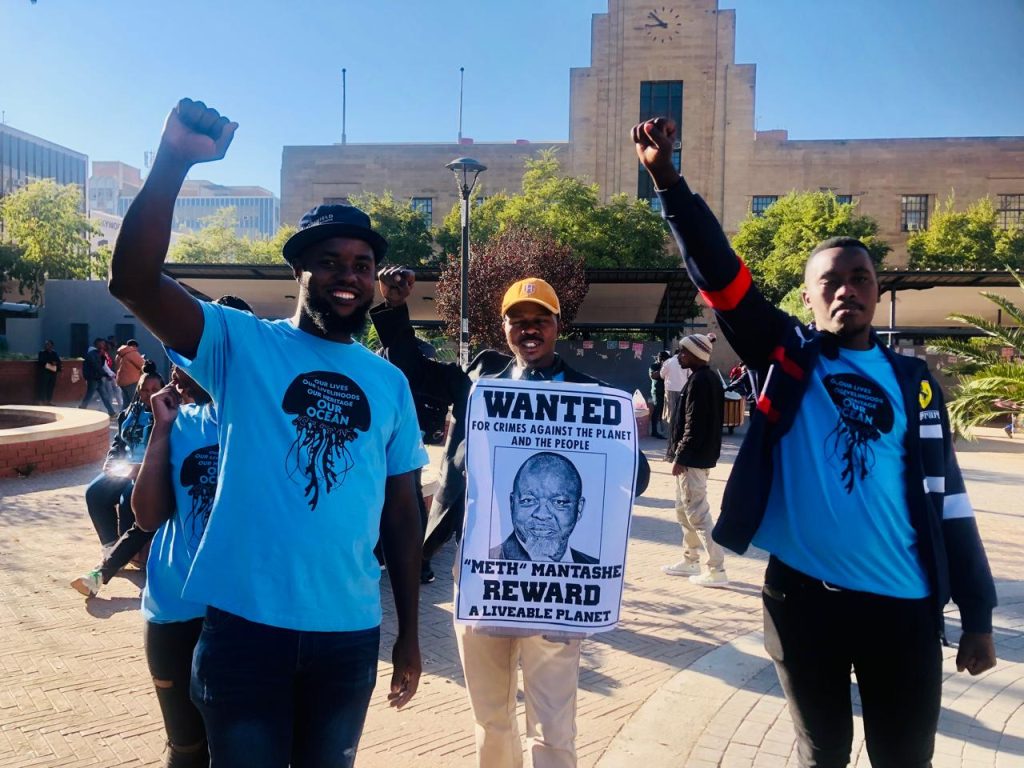
Hands off our oceans
Advocates representing Sustaining the Wild Coast, the Amadiba, Dwesa-Cwebe, Hobeni, Port St Johns and Kei Mouth communities, Natural Justice and Greenpeace Africa, fought hard in the May 17 court hearing, in defence of the finding in the Makhanda High Court. Let us hope their efforts were not in vain.
If the SCA supports the judgment of the High Court, it will send the signal out to these embattled communities that their views matter, that sustainable development matters because their children matter, but also that human rights and climate change are not considerations that can be pushed aside in the interests of economics. It will set a path for those from Bloemfontein to the coastline to be able to be part of the conversations about South Africa’s future.

